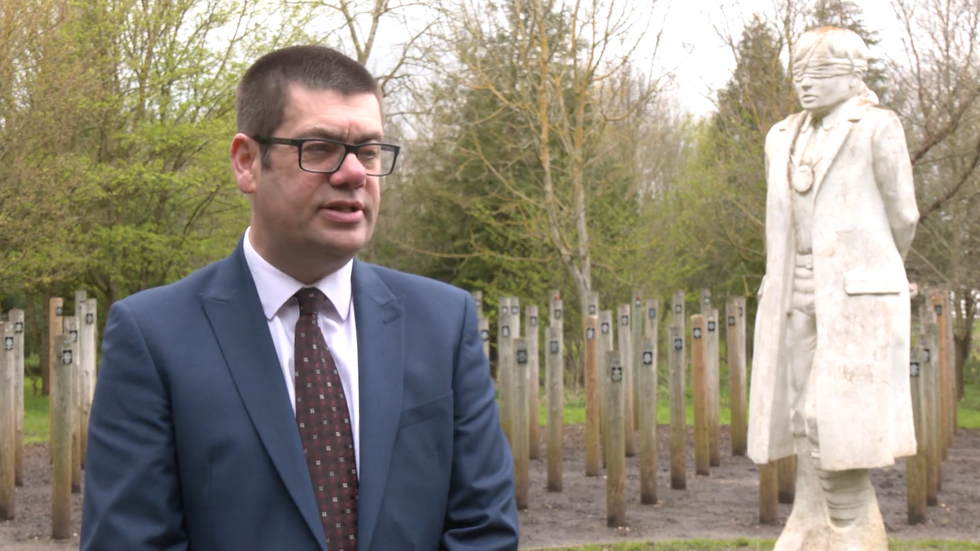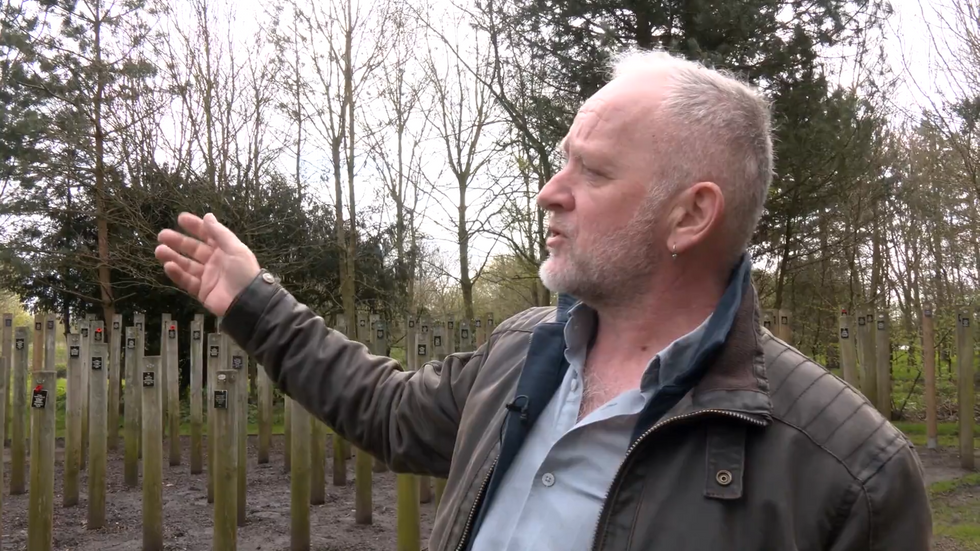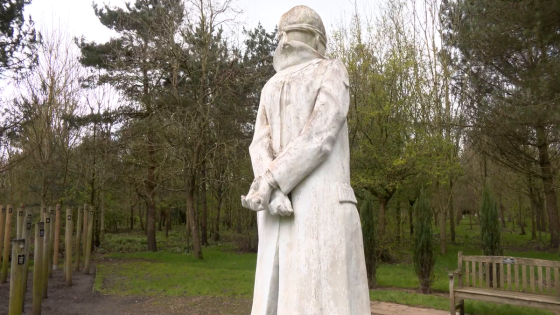A fundraising campaign has been launched by the National Memorial Arboretum to help restore the Shot at Dawn memorial.
The monument pays tribute to the 309 soldiers from Britain and the Commonwealth who were killed for the likes of desertion, cowardice and sleeping at post during World War One.
However, today it’s widely recognised that many of those servicemen were suffering from post-traumatic stress disorder, a medical condition not recognised until 1980.
The Shot at Dawn Memorial was unveiled at the National Memorial Arboretum in 2001, but now more than 20 years on, they’ve launched a fundraising campaign to ensure the preservation of the site.
Fundraising campaign launched to restore ‘really important’ WW1 memorial
GB News
Mark Ellis who’s the National Memorial Arboretum Lead says the restoration is about ensuring the memorial can survive for decades to come.
He told GB News: “It’s a really important memorial for us here at the Arboretum and a must see for many of our visitors, so millions of pairs of feet have walked around it and looked at it.
“It’s also in an area of the site that gets a lot of flooding particularly in recent times. The posts need replacing and the ground needs relaying and redoing.
“We need to raise around £45,000 to renovate and restore the memorial and to make sure we can look after it for generations to come.”
LATEST DEVELOPMENTS:

Mark Ellis
GB News
The memorial sits on the eastern edge of the Arboretum’s site where it is the first to be touched by the sun’s rays at dawn.
In front of the statue are six conifer trees to represent the firing squad aiming for the target around the statue’s neck.
Sculptor of the homage, Andy De Comyn, explained the design to GB News.
He said: “The disk around his neck is actually a target; they used to pin a piece paper to the or have target for the firing squad to aim at, so it was over the top of the heart.
“You’ll see that he’s got no buttons and his epaulette has fallen from his shoulder. Part of the court-martial would have been dishonourable discharge, so they would’ve been stripped of rank and insignia.
“His feet are trapped in this block and it’s kind of a metaphor that he’s trapped in a situation that he can’t extricate himself from, and then obviously blindfolded and hands tied behind his back.”

Andy De Comyn
GB News
There was very little opportunity for defence during the court-martials of those serving on the front lines during World War One, and men were told they had brought shame on their country and would be held in the highest disregard to discourage anyone else from doing the same.
For decades, the families of those shot at dawn campaigned and on November 7, 2006, the British Government agreed to give a posthumous pardon to those executed for varying military offences during the First World War.
One of those was 17-year-old Herbert Burden who was part of the 1st Battalion Northumberland Fusiliers.
At 16, he had lied that he was two years older so he could fight in the war, but ten months later he was court-martialed after leaving his post, reportedly to comfort a recently bereaved friend stationed nearby.
The officers considering Burden’s case heard his unit had been issued orders to make for the front just before he went missing.
Private Burden faced the firing squad on 21 July, 1915. At 17, he was still too young to even officially be in his regiment.
Work is due to begin on the memorial in early May and will last for around six weeks.
Andy De Comyn says the longevity of the memorial is important to remember all aspects of war.
He told GB News: “When school children especially come here and they’re learning about wars, they’re not just learning about regiments and the army, they’re learning about minors, women at war, evacuees. Then there are other things like the mistakes the army made in the past.
“It’s just another aspect of war that just needs to be kept in people’s minds.”
You can donate to the restoration fund HERE
Source Agencies


